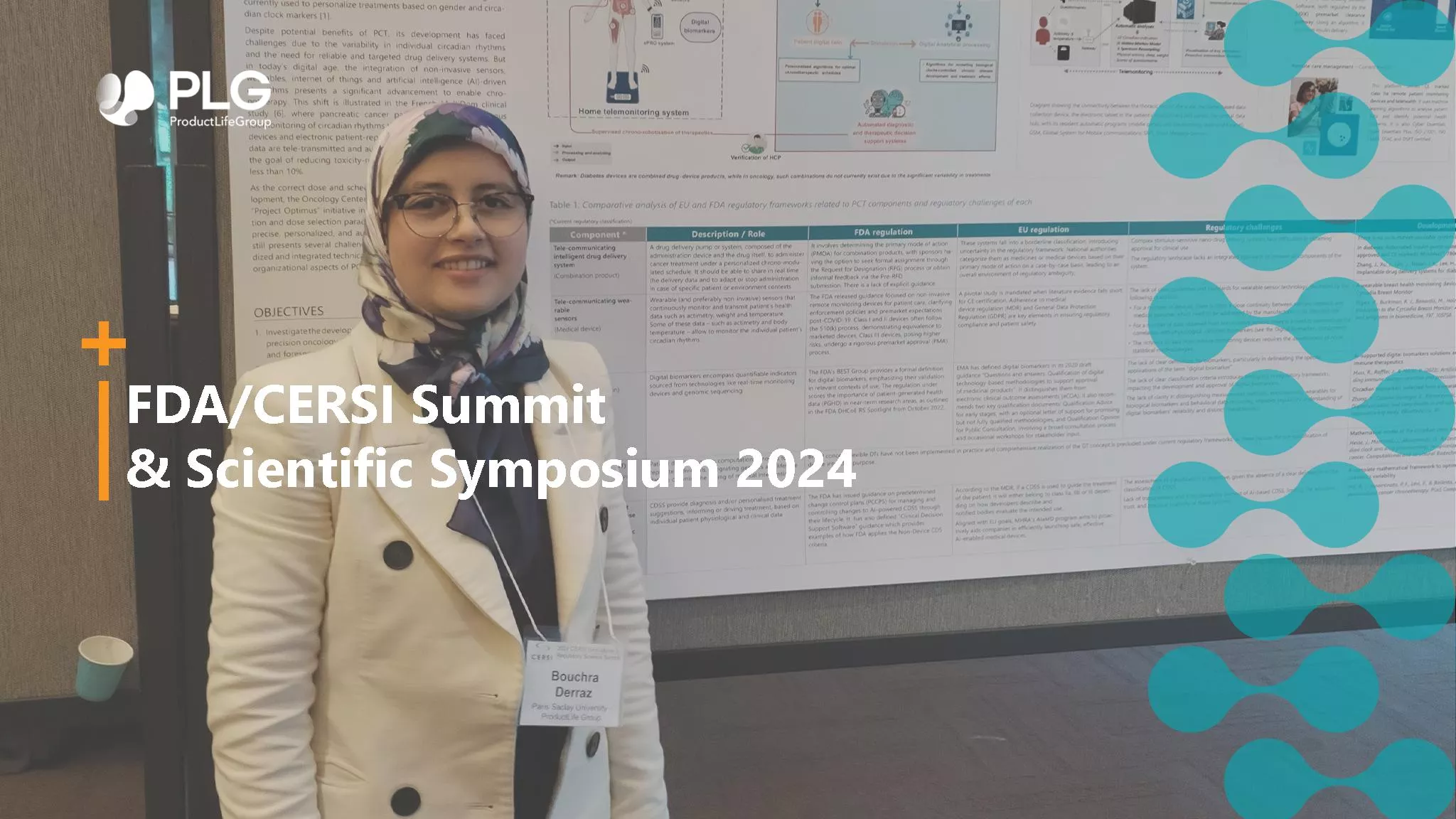
FDA/CERSI Summit & Scientific Symposium 2024
08 january 2024

Regulatory challenges to the advancement of AI-enabled personalized chronotherapy in precision oncology
Personalized chronotherapy (PCT) aims to synchronize drug administration with the body’s natural 24-hour circadian cycle, aligning target receptor/gene expression. This approach seeks to enhance treatment effectiveness through an optimized timing of dose administration – minimizing toxicity and leveraging circadian influences on drug metabolism, cell cycle regulation, and DNA repair. It is complementary to the Optimus project from the FDA Oncology Center of Excellence to reform the dose optimization and dose selection paradigm in oncology drug development.
Despite its potential benefits, PCT development has faced challenges due to the variability in individual circadian rhythms and the need for reliable and targeted drug delivery systems. But in today’s digital age, the integration of non-invasive sensors, wearables, internet of things and artificial intelligence (AI) driven algorithms presents a significant advancement to empower chronotherapy. This shift is illustrated in the French MultiDom clinical study, where pancreatic cancer patients undergo continuous telemonitoring through connected non-invasive devices and electronic patient-reported outcomes questionnaires. All data are tele-transmitted and automatically analyzed every day, with the goal of reducing toxicity-related emergency hospitalizations to less than 10%.
In the future, this individual data collection approach could lead to the development of (semi)autonomous AI-enabled clinical decision support systems for personalized and precise medicine, providing real-time guidance and prediction for treatment and care pathway adaptation. Data collection may encompass more systemic data about the patient, including multi-omics data, potentially leading to the development of patient “digital twin”. Companion apps could improve treatment understanding and facilitate real-time communication between the patient and healthcare providers. Additionally, advanced therapy medicinal products could be specifically designed to target unique disease characteristics, thereby optimizing PCT outcomes.
However, integrating precise, personalized, and automated technologies to advance PCT still presents several challenges, from the development of standardized and integrated technical solutions to the medico-economic and organizational aspects of PCT integration into healthcare systems. We highlight in this poster the associated regulatory challenges. Based on a comparative analysis of EU and FDA regulatory frameworks applied to PCT components and systems, we underscore the need to harmonize regulations and the specific questions related to the development of AI-enabled multi-component systems in PCT. Analyzing existing AI-based devices in other applications, we propose preliminary insights to tackle identified regulatory barriers.
To conclude, PCT, as a direct application of systems medicine, may bring substantial advances in therapeutic products development and patient care. Navigating associated regulatory and ethical challenges requires interdisciplinary collaboration, patient-centric approaches, and calls for more integrated frameworks.
Register to our news and events
Go to our Events to register
Go to our News to get insights
